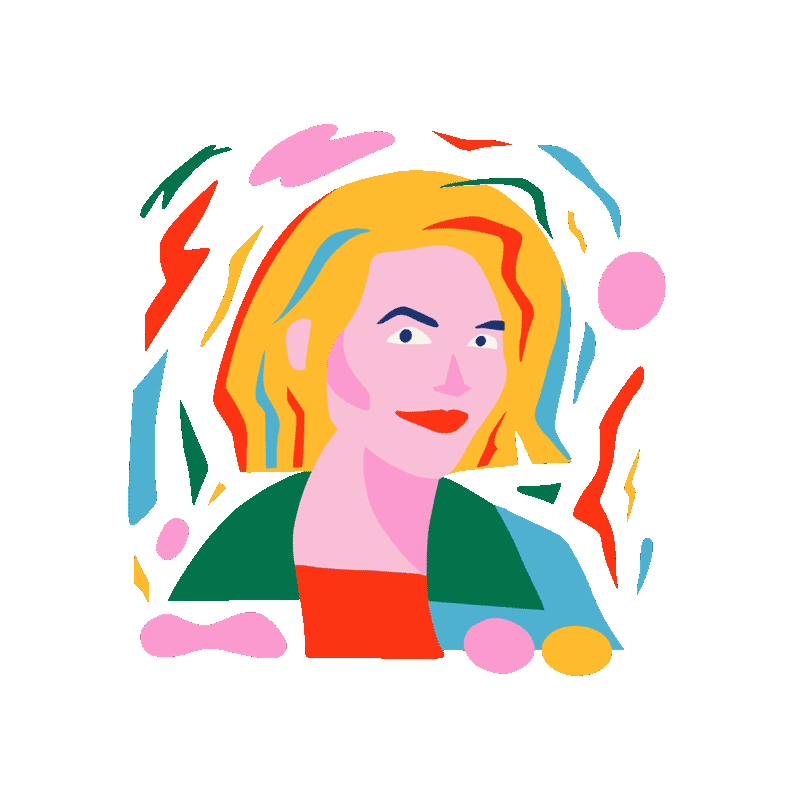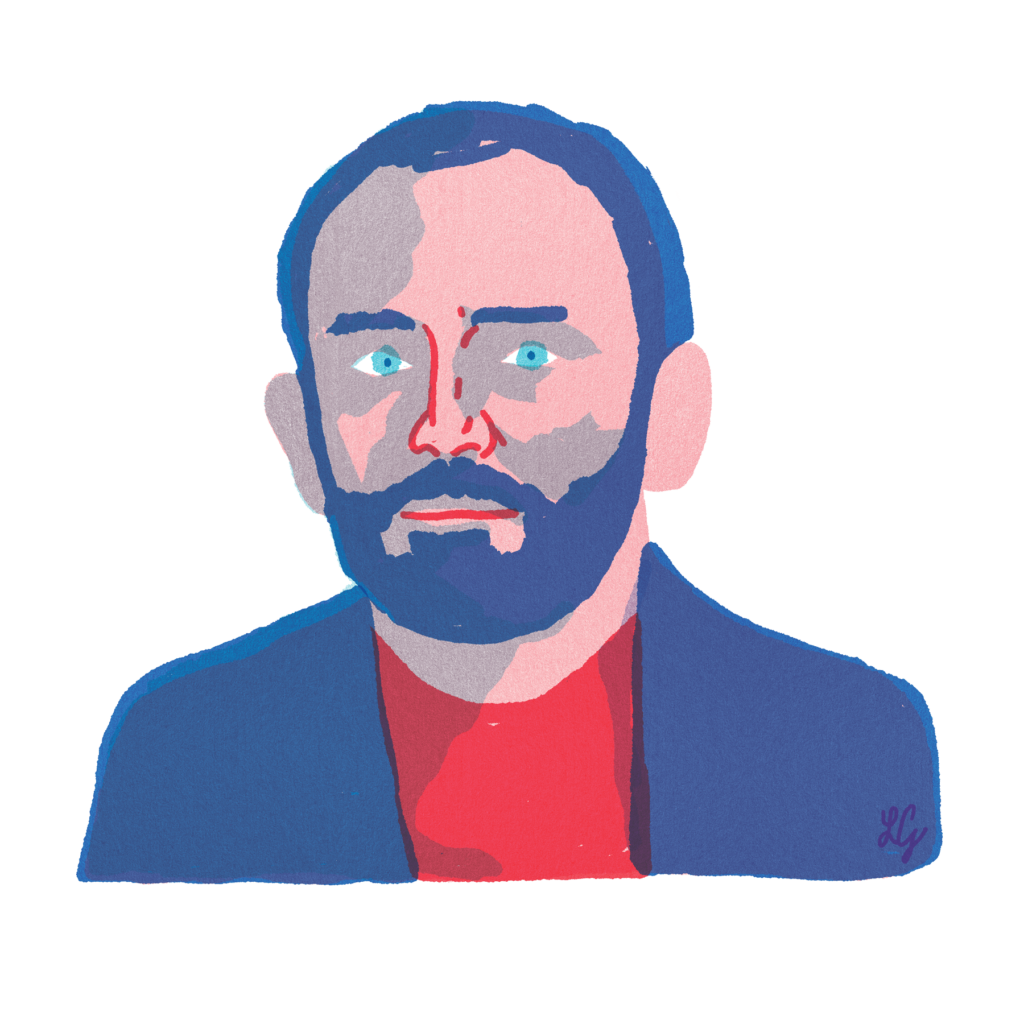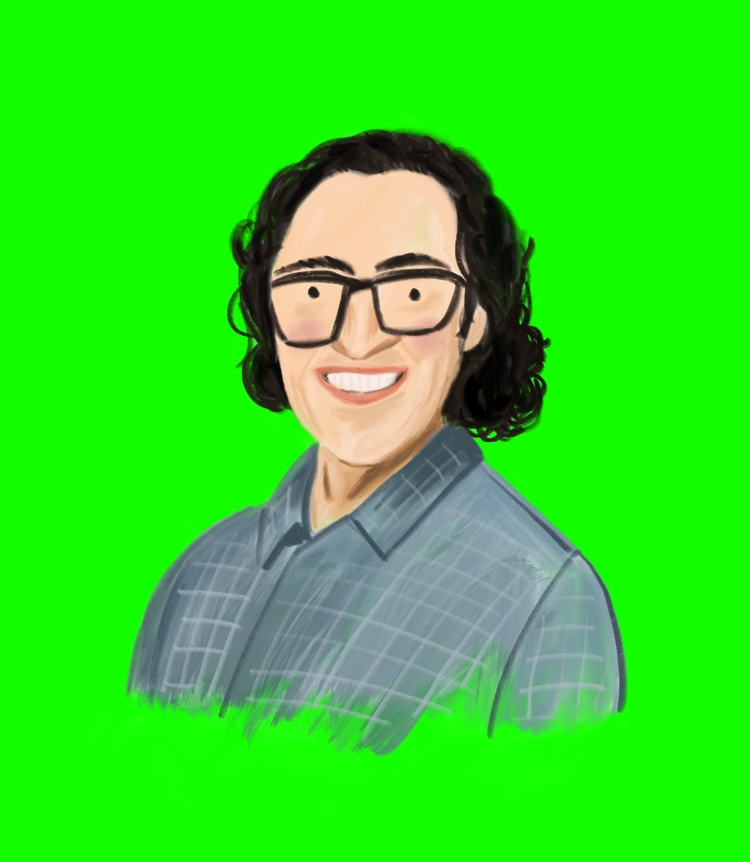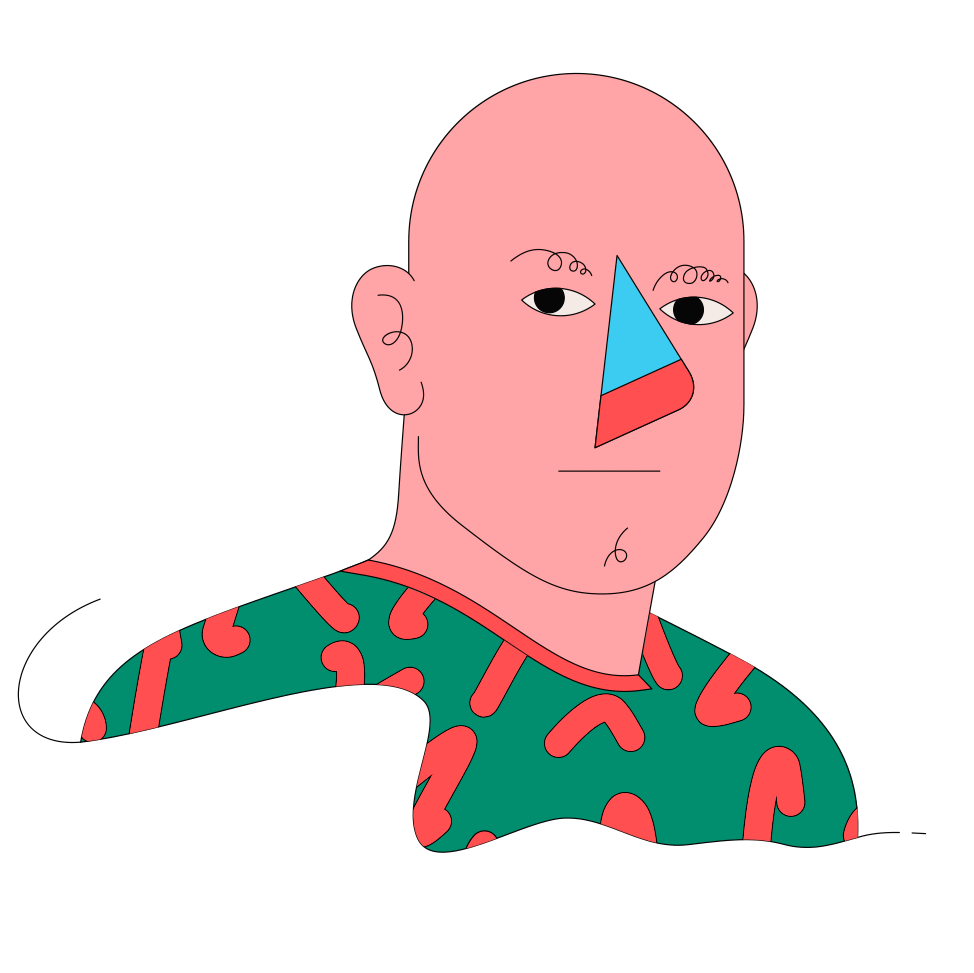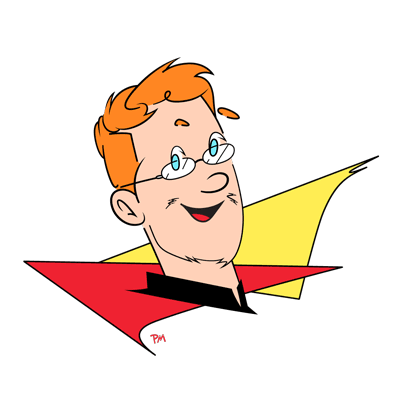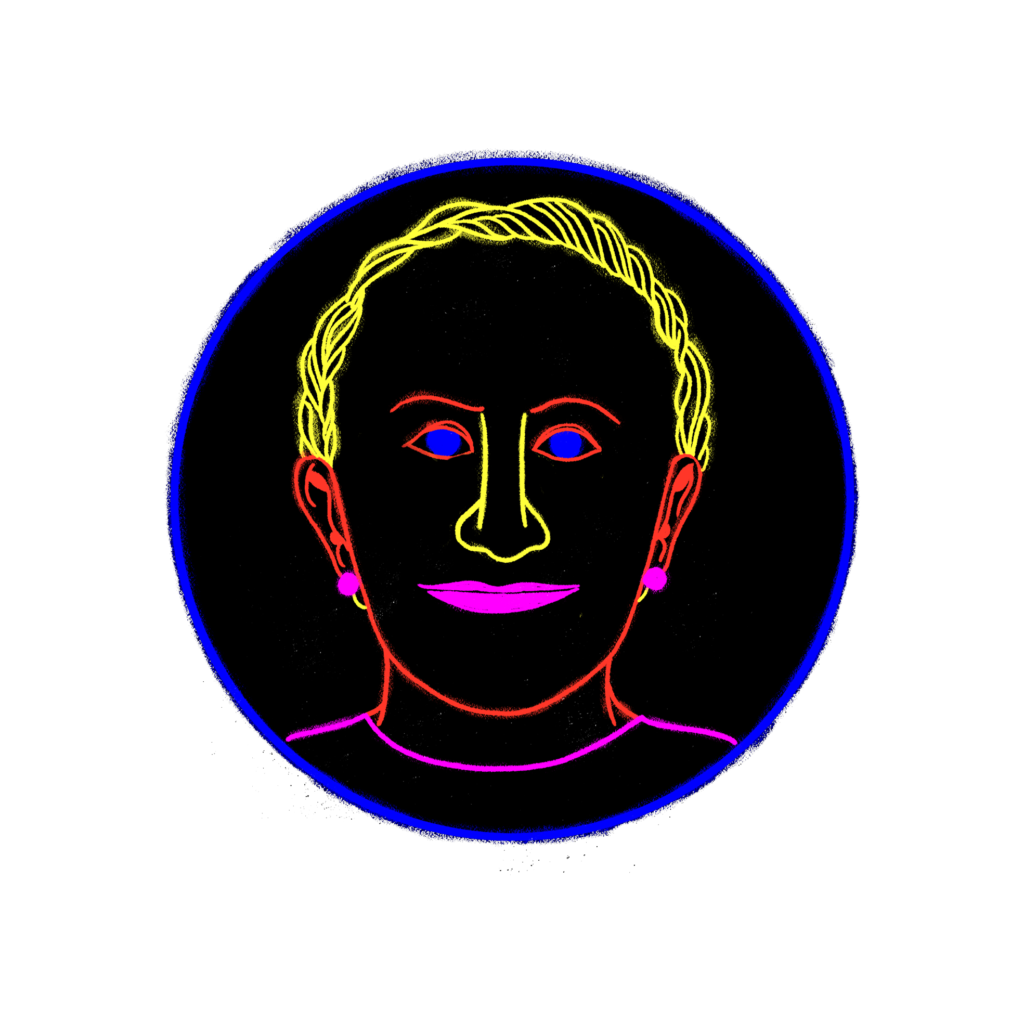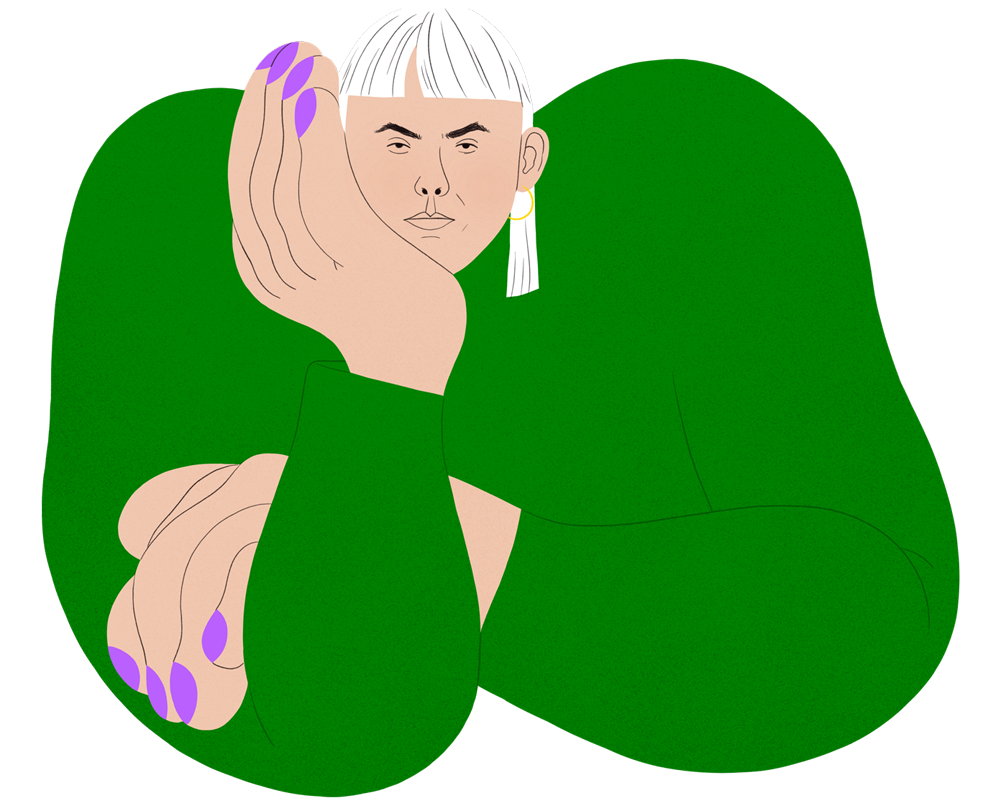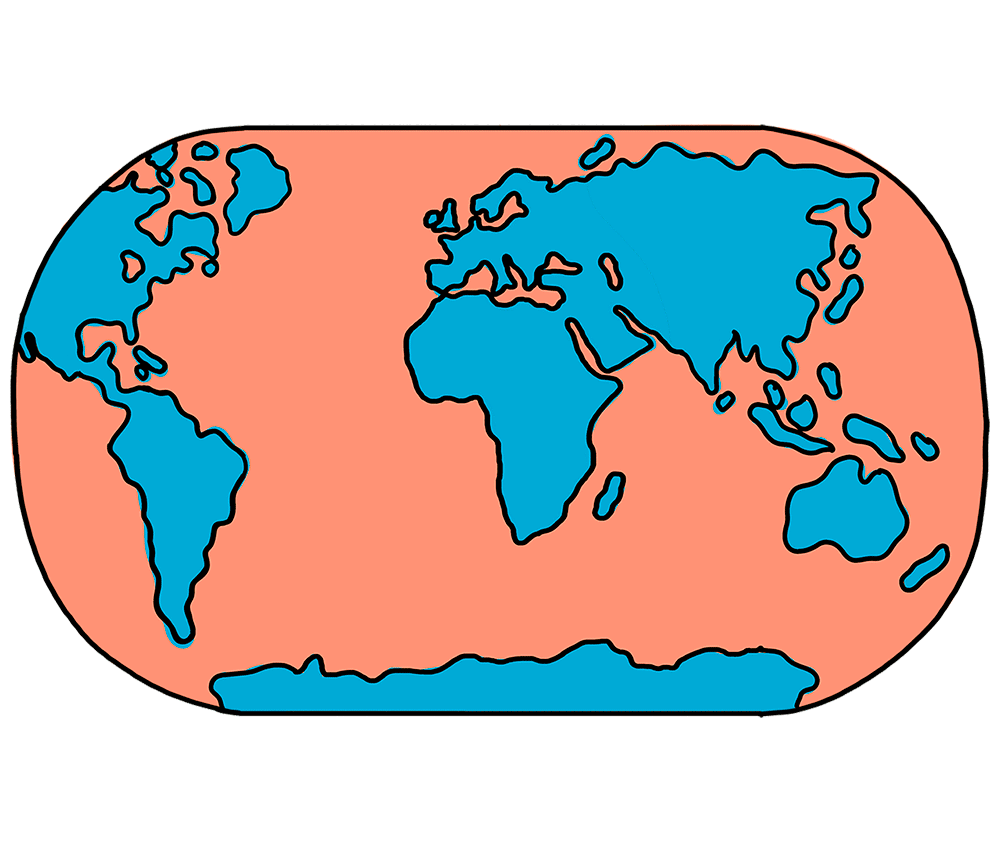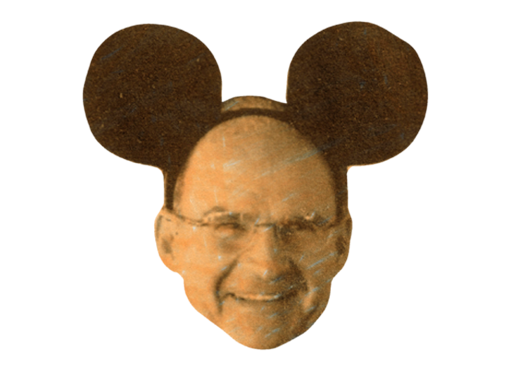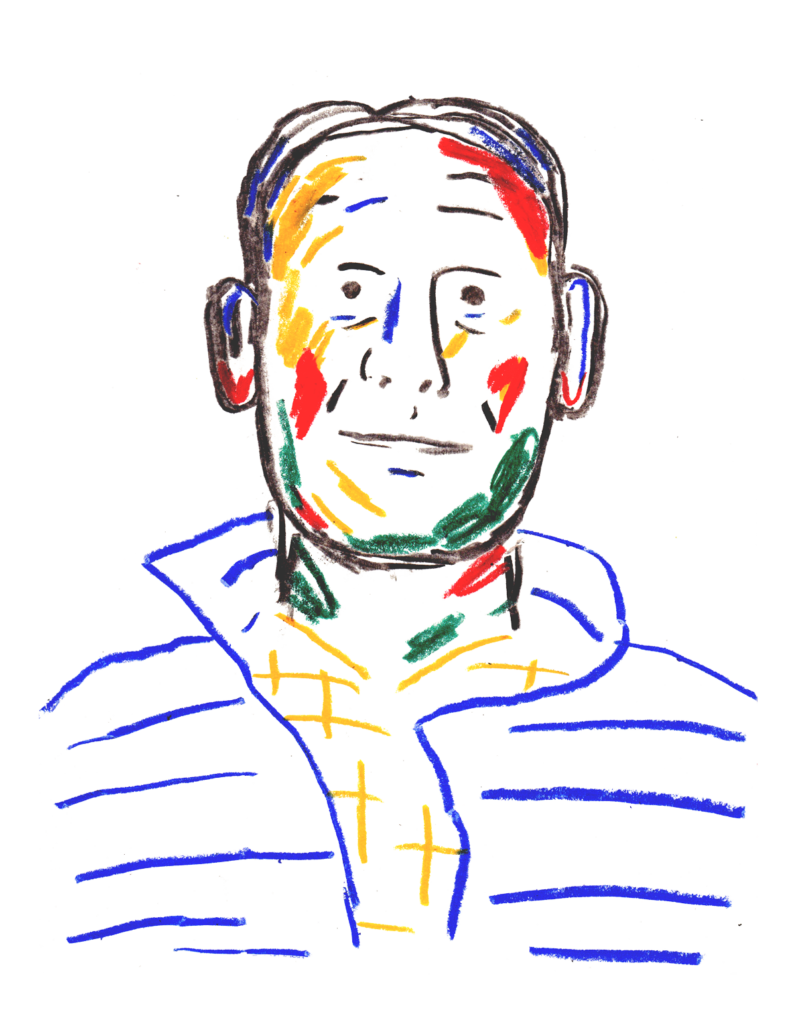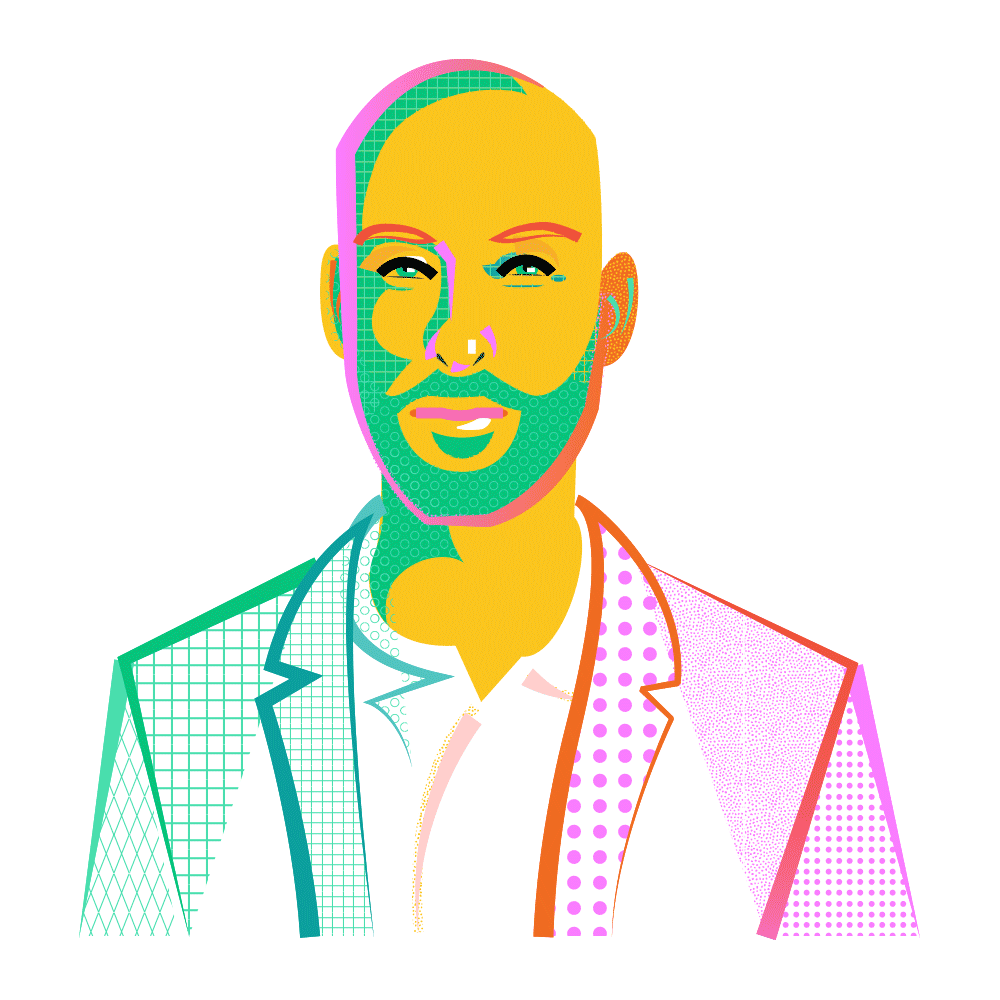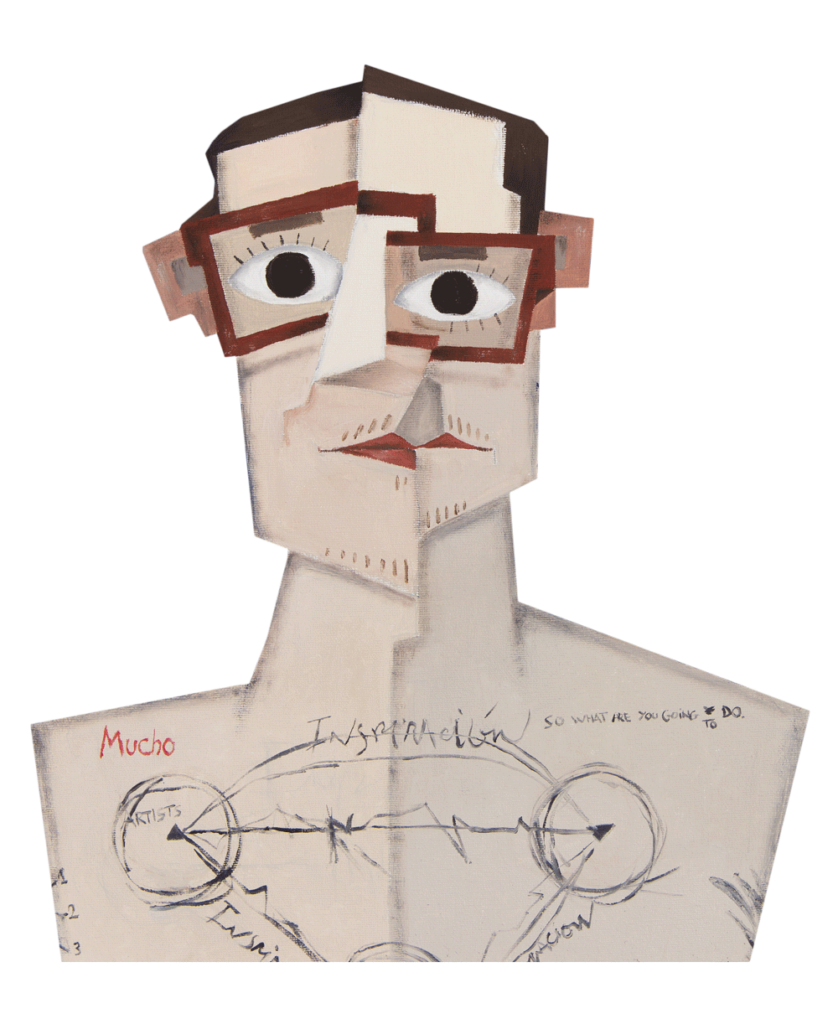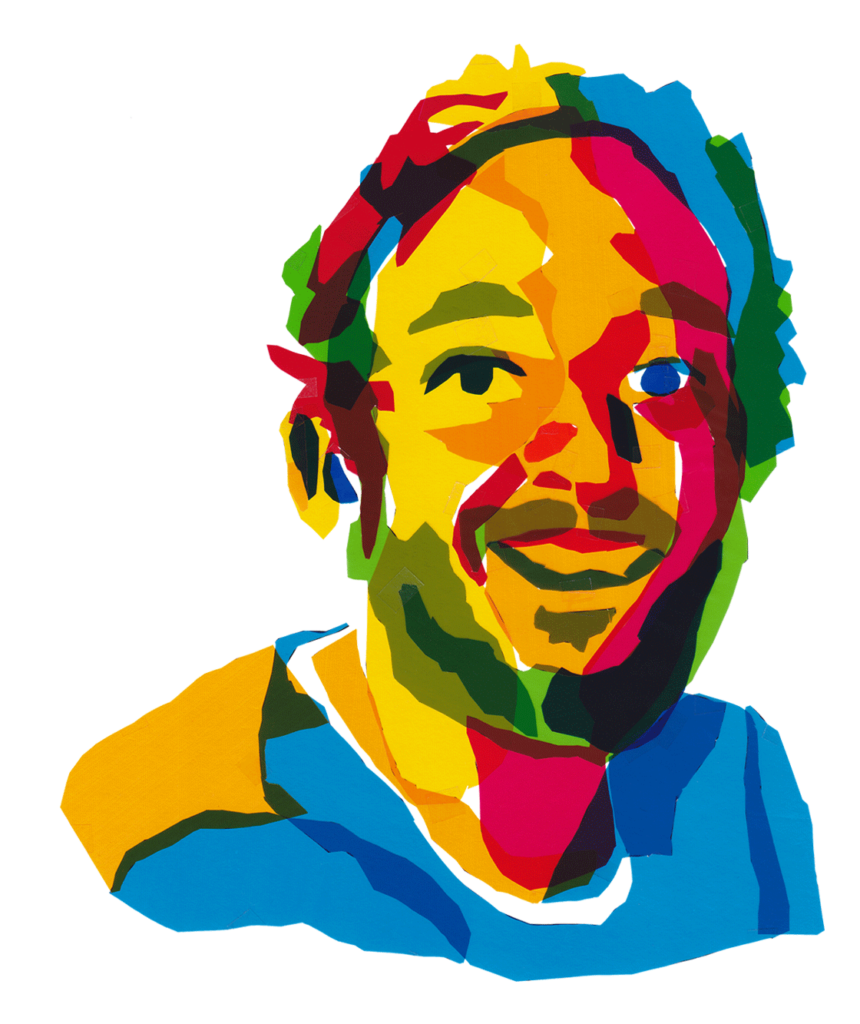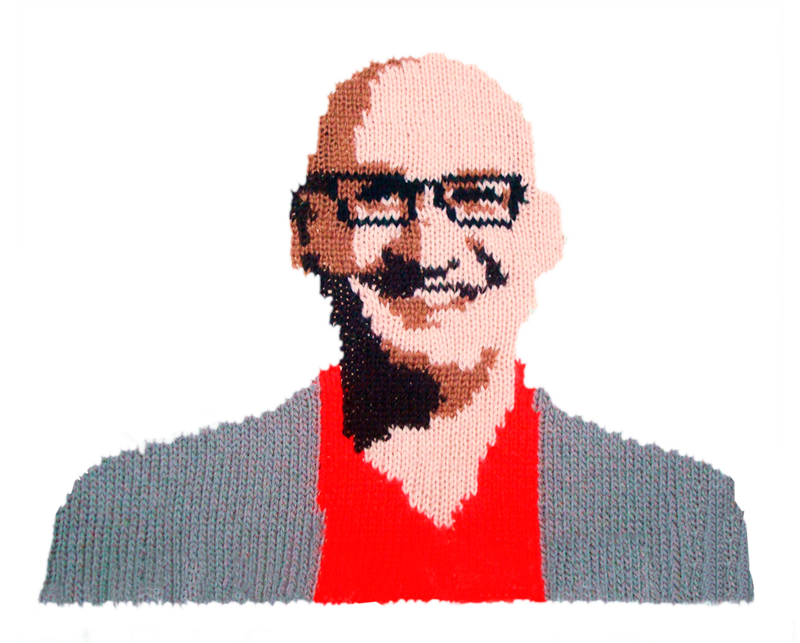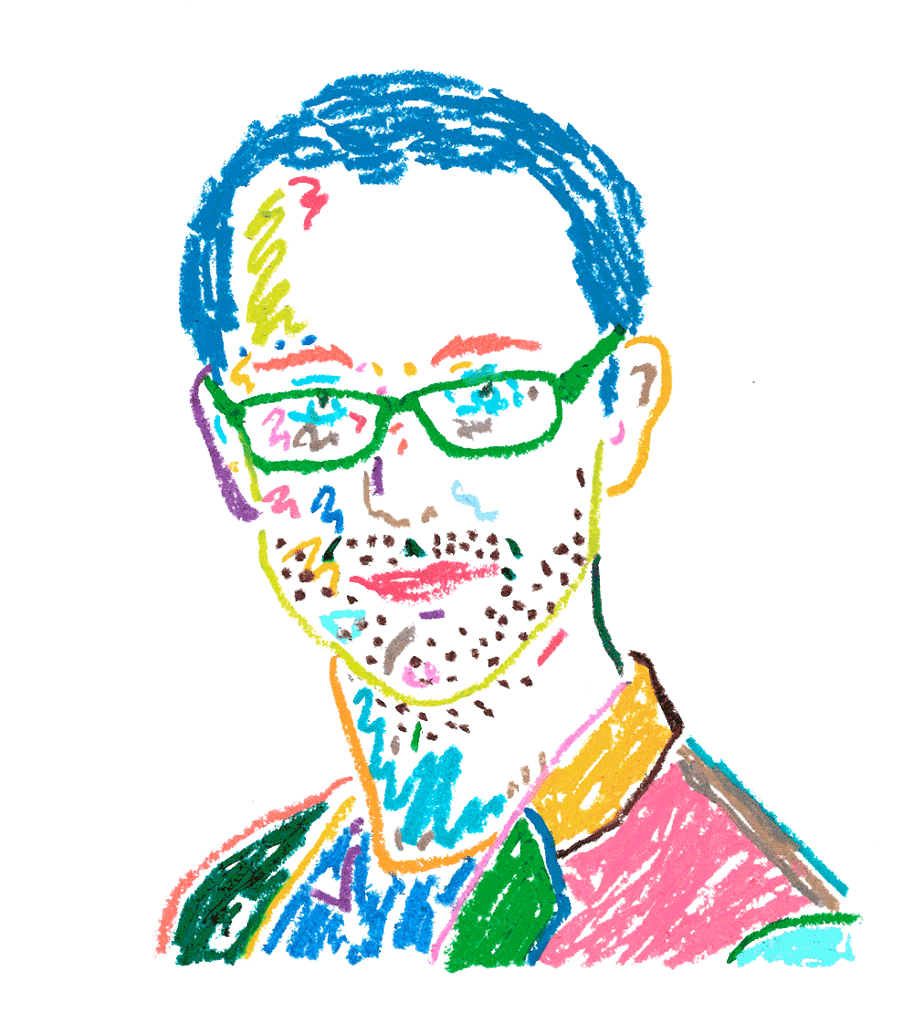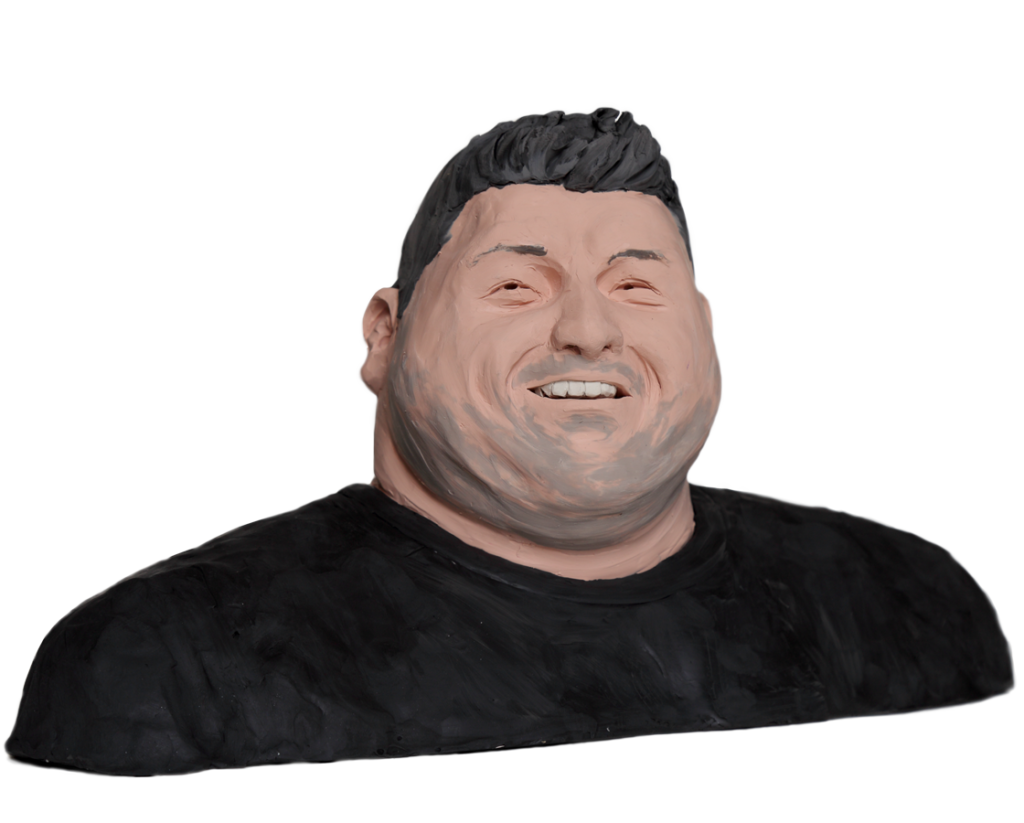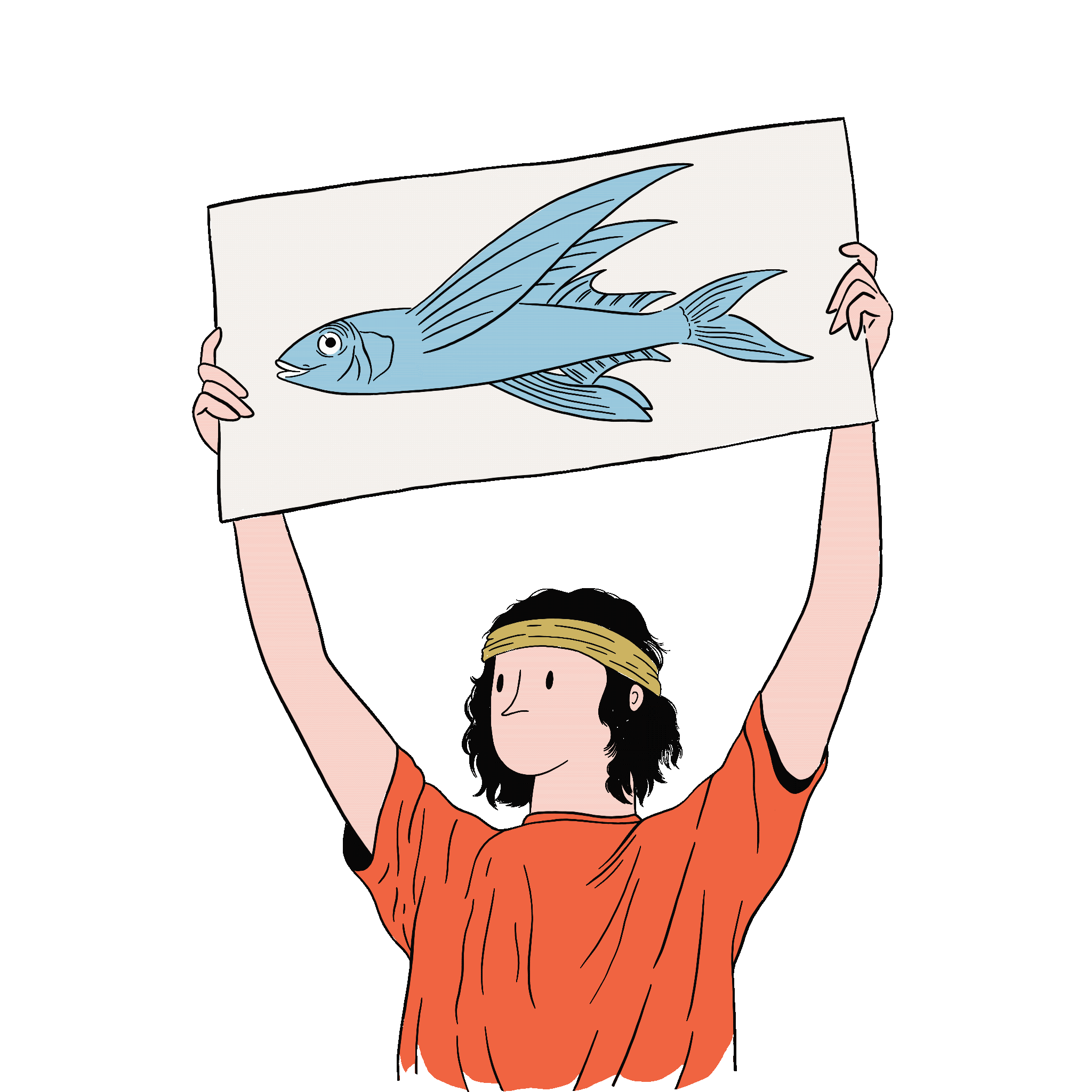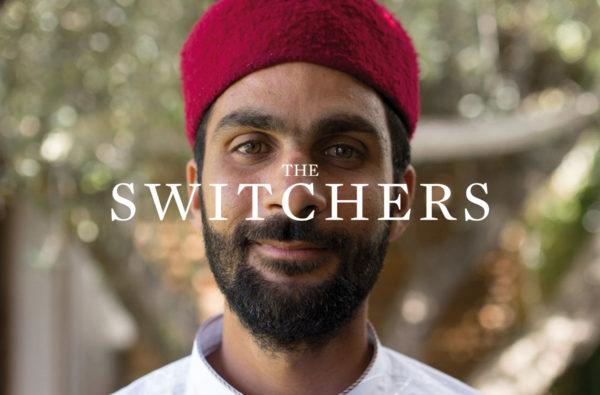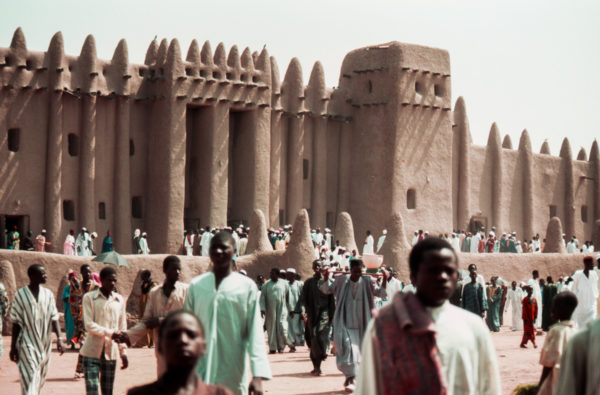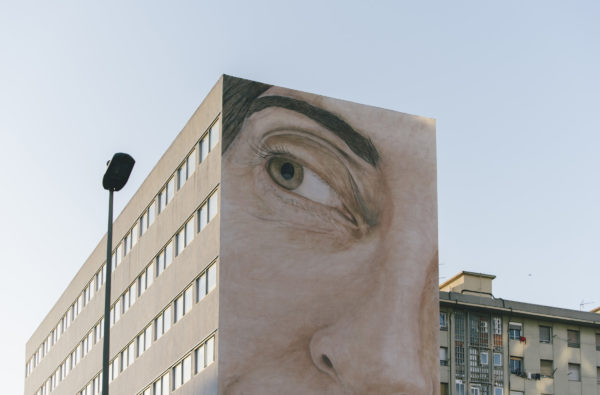David Ruiz is an advertising creative, art director, graphic designer and founder of Ruiz+Company. He has been awarded more than a hundred national and international awards, among which are the gold medal of the art director’s club in New York and the first Grand Prix of graphic advertising achieved by Spain at the “clio” festival, with a campaign for Levi’s 501. He is the author of the logo of the city of Barcelona and in 1997, he was named a member of Alliance Graphique Internationale.
In a world where many have started to talk about what is known as the “new normal”, we want to ask someone who has not yet been “contaminated” by the pandemic: how do you see the “new normal” from a distance?
This new reality or new normal is an abstract concept for me. Up until now, it didn’t exist; frankly, it doesn’t seem to me that there is anything I can identify as “new”. This morning I looked around and I didn’t feel anything new, and then in front of the mirror I realised sadly that, as far as I’m concerned, I still have the same disgraceful out-of-style shabby hippie appearance. What was wrong is still wrong.
After three months anchored in the Red Sea, in front of some small desert islands waiting for the ports to open, I arrived in Turkey, hopeful to find some evidence of that new reality, or “new normal”, but the only new thing I can see is that people wear a sad mask hanging from their neck. Shops are still there and they are selling, taxis still carry passengers, restaurants keep getting filled with people and tourism continues. I’m leafing through papers from other countries and I really don’t feel there is anything new.
Maybe I’m rushing things and the new normal hasn’t even started yet. In that case I would like to know what day it begins, because I’ll take a shower. Maybe what’s new is intangible, and the only new things are the thoughts provoked by the shock we are living; thoughts and feelings that, until today, we didn’t have, and now we have them collectively and obsessively.
Suddenly we think about the vulnerability of our existence, how fragile everything was, in paradigm shifts… Thoughts to which we now dedicate our full attention and have positioned on the front line in our minds. Maybe they’re just seeds and they need their time. For now, what I see is that while we think about new realities and new normalities due to the drama we are going through, we are slowly and obediently going back to the old normality.
How do you see the world from the deck of a boat when you’re thousands of miles away from home?
The world from the boat’s prow is beautiful on one side and absurd on the other. I see cities as huge hives of collective hysteria. I understand that at some point in the Neolithic, we decided to settle in small nuclei that would end up becoming cities and we would stop wandering from one place to the other, seeking to secure a livelihood. But today it’s obvious that we humans have gone crazy, everything’s gotten out of hand – just take a look at places like Dubai. Seen from a boat which has been sailing the ocean for four years, this frenetic race fleeing from the essential to the material and artificial seems like a mistake. We are not progressing correctly, we have forgotten about living.
We are not content with ignoring nature completely, we’ve somehow decided to destroy it, whatever it takes. A titanic effort to which we give ourselves religiously. If we bear in mind that it’s no secret to anyone that by destroying nature we destroy life, we will all agree that our curious goal is to extinguish ourselves.
I am more aware of inequalities, injustices in life and our unlimited selfishness; to be born in a flat in the centre of Paris is not the same as being born in a hut in the desert of Sudan. Supposedly, the first one shouldn’t brag too much if he manages to make it in life, and even less should he look down on him who hasn’t had the same luck.
Then there are places where they only have the essential, like the islands in Vanuatu. I think they survive because they’re too far away from anywhere else. They live off fishing and harvesting in small villages and towns, with their markets and their schools, surrounded by unspoilt forests and coralline waters. Their expression is kind, relaxed and healthy, and when you address them they smile. I tend to pay attention to the corners of the lips. In more developed countries, from a certain age, they drop in a descendent curve. It’s not that we’re pulling a face, it’s more like a print, slowly engraved. It doesn’t happen to the old people of Vanuatu.
What about your profession?
From a distance, I see my job as a cyst in my oesophagus. I perceive it, more than ever, as part of the crime, as guilty of the offense. We’ve been fanning the fire of consumption irresponsibly for too long. For decades we’ve been creating fake dreams, wishes, desires and unnecessary needs; accomplices of corporations, provoking rivalries, violence, frustrations, envy and existential depressions. We are directly co-responsible for building this brutal veneration towards the material and towards irrational consumption, and the Hague tribunal should judge us all for fools.
Even if it’s true that responsible consumption culture and corporate ethics are starting to crystallise, this happens only in developed countries. The Indic Ocean in Indonesia is a sea of plastic tossed unconsciously everyday by inhabitants through their windows to the water by the ton. They’re not to blame. They are true to the model they’ve seen for decades.
How do you think communication and advertising should fit into the world we will have from now on?
The world seems divided into two opposing mentalities. Solidarity on the one side and individualistic selfishness on the other. The latter tends to manifest itself in less evolved people, and I’m not talking about intelligence, because many of them govern countries. Their behaviour and their policies are direct consequences of their fears and they’re dangerous precisely because they base their strategies on fear.
Creativity, original thinking and imagination are our tools. we must use them more than ever to tilt the balance towards a world which values solidarity. As communication professionals what we can offer through our work, through design and advertising, is huge.
For a long time, corporate success was a concept linked to efficiency and marketing. Where are we now? Where do design and creativity stand? Are they really useful?
We are starting to see how only those companies which are truly transparent and committed to ethical, responsible and sustainable values have a future. However powerful a brand or a corporation might be, today it is subject to public scrutiny from millions of consumers, and if it is shady or dishonest it will end up failing. There are tons of examples, big giants have fallen due to public pressure, boycotts or vindications from platforms such as change.org; power is in the hands of society and greater transparency, enabled by new technologies, is revealing unethical behaviours. Corporate success today begins with a commitment to ethical values. As companies in the communications industry, we have to follow the same principles. Our job is as valuable and as necessary as it has always been.
Can we train to be creative?
No. Nor can we sing like Frank Sinatra because we don’t have the voice he was born with. Everyone is born with a special ability to do something in life, and it is essential that we discover as soon as possible which is ours, so that we don’t waste much time.
Can we make our structures, companies and institutions act and think differently?
If we’ve managed to make people move around cities in huge 4x4s, it’s obvious that our power has no limits. This is why it’s important that we use it responsibly. Good creativity is a factory of emotions and emotions are the fuel of revolutions.
What should we focus on as everything changes?
On the essence. We must untangle the woollen ball in order to understand it. Put it on the table and start to patiently undo each and every one of its knots, one by one, trying to make sense of them. This should serve as a useful way to adapt to change without making too many mistakes.
What will remain unchanged?
The unchangeable is truth. Change is always the erratic path. But there is no other option, our way of progressing only occurs when stumbling along erratic paths.
For a long time now we have been exploring Bauman’s concept of liquid society, but within the area of branding. How can we adapt to a constant change, of environments, mediums, trends and audiences, when it is other people who control the story of your brand?
Yes, today Bruce Lee’s motto, be water my friend, is essential. Those who aren’t able to adapt will stay behind. It is all about not losing coherence. I believe this is the real challenge.
In order to move in those diverse and changing scenarios without losing track of the direction you’re heading, it’s essential that you have a direction. This doesn’t always happen. The path of a company should be what Simon Sinek defines in his renowned “Golden Circle” as the “Why”. The why, the Raison d’Être of my company is before the what and the how. If this “why” is as real and solid as a rock and the company manages to communicate it through each of its pores in a natural manner because everything hangs from it, it should be able to put up with an anatomic branding project.
To what extent is art and creative direction the best way to fix a brand in people’s minds?
The best way to fix a brand in people’s minds is no longer in our hands. Beyond the product being good and generating interest, that brand must be honest, transparent, ethical, sustainable, with solid principles, and it must prove it is coherent with them. If this doesn’t happen, we shouldn’t even work for that company, because if we don’t abide by these principles either, we will start digging our own grave, alongside the company’s.
Society is increasingly sensitive and we are more and more angry at the abuse, lies and pathetic behaviours on behalf of corporations that are destroying nature and mistreating their workers with the sole purpose of increasing their profits. Everything suggests that this will decrease progressively, because now we have more information and it has become easier to report publicly and act collectively. Starting on these premises, our job continues to be as necessary and efficient as always.
What can Barcelona offer, as a city, to this new context? What is the Barcelona brand to you? What role (strategic, political, social) should cities have in the new phase?
The scenarios of a collective shock are always opportunities to accelerate change processes. It’s not always done ethically, there are well-known Machiavellian examples throughout history; but undoubtedly in these circumstances we all pass a self-examination, and a mental predisposition in society is generated. This should help us activate all of those improvement initiatives which in a daily context are way more difficult to put together because force of habit stops us from doing so.
This would be the moment to create tourism model which would set an example. Less volume, better quality. Guiding the offer, emphasising the cultural character of the city, which is huge, and an architecture that goes beyond the clichés. Building a model which, in the long run, will be more solid and sustainable.
In any case, I’ve spent a long time disconnected from the city and I haven’t suffered lockdown. I’m unable to feel what you feel and I can’t find out the real magnitude of the post virus situation. I won’t find out until I get there, I put my shoes on and I walk on the pavement again.
For a long time you managed one of the most renowned studios in Spain. What made you different? Do you consider yourself disobedient? Does it make sense to be disobedient in business? Which memories do you have of your company years and what would you rather forget?
Designers see me as an advertising creative and to advertising creatives I am more of a graphic designer. For 25 years we have done projects from both areas simultaneously. This has always been a distinction at Ruiz+Company. One discipline greatly enriches the other and it’s obvious that at some point they meet.
Besides being disobedient I would say I am atypical, or at least I was. I have been guided by the heart more than reason. I have always chosen projects; I’ve never gone out in search of clients, they have come themselves, attracted by the work they have seen. I’ve been able to say no to those who you can predict will hinder creativity. I have rejected them whatever the budget was, even if I was starving.
Our work can be very boring, depending on who you associate with. This made our positioning as a creative studio very clear, and in a short time we only received clients who were actually looking for creativity. Those are the clients that we like, the ones who carry the creativity culture in their DNA; consequently, winning prizes has always almost been mandatory, a thermometer, a way of knowing that we are coherent with that positioning and that we are still in the spotlight.
Going back to disobedience, I believe it makes a lot of sense. It’s a concept bound to creativity. Rules and norms are always a corset, and if we initially limit ourselves to that corset, we are castrating one of the fundamentals of original thinking, which is based precisely in approaching things from the opposite side, from the side you would have never expected. And that side can very well be out of the rules of the game. If so, they must be broken. As professionals I believe we must be non-conforming and question everything. I think it is the most serious thing to do even if –paradoxically– that implies being disobedient in some cases. As long as we stay within the ethics.
I’ve never seen myself as a businessman, however I’ve obviously been one. One day you look around and you’ve started a company. During the first ten years of Ruiz+Company I was associated with the designer Marina Company, and I learned something thanks to her innate corporate approach. At first it was really hard for me to lead well. I often felt intrusive telling a colleague that they had to change this or that. Being in charge is not easy. Over the years I have managed to understand and, above all, value what good leadership means. Until the day I cut the ties of this long professional chapter, there is nothing I would want to forget. I have a great respect for all the people who passed by and made it possible.
What makes us creative companies different from the others? And what can we teach other companies or clients who bill 1000 times more than yours?
We sell ideas and we create emotions. That is what makes us different. To a company that bills 1000 times more than you, you can teach her that with your idea, they will be able to bill 2000 times more.
I understand that a trip like yours takes months to prepare for… have you prepared for the return, too? How do you think it will affect you, professionally speaking? Will it change you? Can one pick up their old profession again, just like that?
I wasn’t able to cut ties until the day I knew how to manage my return. I was worried about coming back. Will I be engaged after an experience like this? Will I regret having closed Ruiz+Company in the middle of a consolidation and success phase? Am I throwing my life away? After such a long time being disconnected, will I have missed out and seem ridiculous in front of my colleagues? Will I be a perfect idiot instead of that young and bright entrepreneur which I always thought myself to be?
One day I turned it around. I realised that once I was back I would be turning 60, something which honestly seemed and still seems like an unprecedented event. I was so offended that I decided to take revenge. I challenged myself to make a fresh start at that age and prove myself not only capable of doing so but making it the best phase of my career. When I get like this it’s better to go along with it instead of contradicting me. I recorded these statements on a slow burn in my neocortex and, since I set sail towards infinity, right up until today, I have been recreating that idea in my head until it’s become an orgy of fervent desire.
You must have been in many cities around the world (not as a speaker but as someone who arrives by sea and anchors in a bay or in a port). How is the world seen from that perspective? Have you changed your opinion about anything?
The days that pass at sea, since the last country you left until you reach the next one are a neutral space, a phase of transition. You have the privilege of progressively erasing the first to slowly start assimilating the second. You don’t arrive at an airport, or a bus terminal or a train station packed with people. Most of the time you don’t even arrive at a port, just making it there is already a milestone. You do it as it has always been done, by sea, after a few days of journeying, anchoring in front of a beach, or in a bay.
It’s only you arriving, you don’t arrive in a flock of unknown people, it’s your journey. You’ve done it with enough of time between seeing land for the first time and stepping foot on it, to fill your head with ideas, to make up your mind and to be really conscious that you have arrived and where you have arrived.
The flight of some birds and the low clouds in the distance are the first signs. From the first sight, which is a faint shadow on the horizon, the approach occurs slowly, it can last a few long hours which are usually magic. The coast starts to reveal itself progressively and you begin to identify mountains and valleys.
Suddenly, scents invade you. The landscape now comes in through your nose. The smell of the earth, the fragrance of vegetation and the perfume of flowers. In some islands in the Pacific it’s so intense that, when it occurs, the feeling stays linked to that place forever in your memory.
Time elapses and the coast becomes immense while you feel exactly the opposite: a building, a forest, a beach, an aerial; and as you get closer, those emotions start mixing with a certain uneasiness, just like any sailor you know that danger is actually on land. The sounding line warns you, the seabed and reefs suddenly creep closer; the swell of the waves changes, affected by the new depth, and your enthusiasm weakens while you focus on the chart. You plan your manoeuvres, you analyse the new surroundings, you look for the right place, you strike the sails and you drop the anchor. You breathe deeply, free of tension and a feeling of fulfilment invades your body. You’ve done it again, you’ve arrived.
Arrival by sea to a new country after sailing for days on end, surrounded by waves, pushed only by the wind, allows you to adjust your perception of distances. You are aware that you are travelling. The perception of the world from nature is just another one. We tend towards the artificial. We reduce the size of our planet by travelling from one side to the other within a few hours. Without space to even notice it. We barely feel the journey. We’re in a rush, obsessed with making the most of our time, but in fact what we’re doing is going through life without even realising it.
It seems that besides being a good creative director, designer and sailor, you are a good chronicler. How much of what you write is real and how much is story?
Sometimes while I write the blog I feel I want to start fictionalising it in a subtle way, transforming it into a big lie until, gradually, I bring it into the realm of the unbelievable, of science-fiction. However, I abstain from doing so, because however attractive this idea seems to me, I don’t think I could resolve it well enough.
Often how you explain something is as important as what you explain. I’ve been doing this forever in my work, which is nothing other than building concepts and stories which will awake emotions, both through their meaning and through their shape. For this to be effective, I should be the first one to be moved, and in that sense I find it very easy, since this trip for me is pure emotion.
It’s not hard for whoever follows the blog to realise that all of the deeds or heroic acts are attributed to Thor. It comes out this way because I feel it and it allows me to tell the story openly, in the third person, without sounding or seeming pretentious. In some occasions I can even give it an epic tone. By contrast, I tend to describe myself as a guy who does what he can, a kind of antihero who is mad at himself, creating a relationship between Thor, the fine boat, an untiring warrior that protects me and keeps me safe, and that hippie-looking out-of-style sailor who curses when things go wrong and who butters his body with onions to keep himself safe from mosquitoes. The thing is that this character is based on real facts, it’s actually a perfect caricature of myself. It comes out with no premeditation, automatically, and as I write I crack up laughing.
What made you leave your agency to sail around the world? Exhaustion or renaissance?
When I turned 50 I treated myself with my first crossing of the Atlantic alone. It was a teenage dream which I wanted to fulfil one day. A dream that was born after reading the books of the great solitary sailors throughout history, sailors who influenced me forever. I learned how to sail while lying on my bed, reading, and I couldn’t think of anything else. Today, I realise how much these books influenced me. I think that if I had read political books instead, today I would be managing a brothel instead of ploughing through the Indian Ocean. The experience of this first crossing must have been ten years ago, and it was so formidable in every sense, that the idea of a longer trip began to take shape.
Two years later, I felt confident and I signed up for a solitary regatta from the Canary Islands to Colombia. I had a really hard time. A storm in the middle of the Atlantic that wasn’t supposed to be there tossed me so hard that I ended up breaking the tendons in my left arm and I lived a small ten-day odyssey until I reached an island in the Caribbean. That experience, far from intimidating me, bestowed an overdose of self-confidence, something which I already had plenty of.
At the same time, Ruiz+Company was celebrating its 25th anniversary, so it seemed like a good reason to take a small four-year break from my frenetic professional life. Even though I love it (it could be my hobby), I felt a little bit demotivated. I had been going through a small existential crisis for some time, apparently one that comes at a certain age.
Then one day you read that quote by Mark Twain you left on the wall, like a slap in the face. The one that says that in twenty years you will regret everything you haven’t done… the one that says get out of your comfort zone… cut with your ties, etc. And then you read Walden by David Thoreau and his experience of living for two years in the middle of nature… you start dreaming again, just like when you were twelve, and believing it to be possible and that making it happen is in your hands.
If you add the fact that my children are already flying solo, the cocktail starts taking shape and you realise everything fits and nothing has to be forced, which is an essential premise. From then on, it’s not hard to convince oneself; a kind of internal complot pushes you around with sentences like: “let’s see, you idiot, what those savings in La Caixa will be useful for once you’re dead?” and other threats of that nature, and when you reach this point you’re lost, because the curtain is up and there is no going back.
My main objective is to reach a point of complete disconnection from work and total connection to and immersion in nature. To live in the present, which is so hard for us; without plans, on the go, without conditions; losing myself in the ocean, sailing West, following the sun; merging myself with nature, living barefoot, feeling free, being free.
Have you ever dreamed, either before or during the trip, about not coming back and staying in some remote corner of the world, starting a new life?
You tend to fantasise about a new life when you don’t like the one you have, and this is not my case. It’s actually the opposite. I’ve spent five months in New Zealand, which I consider an ideal place to live in, but as the song says “I was born in the Mediterranean”, and I really wouldn’t change that for anything.
I’ve been anchored for more than one year in some of the most impressive islands of the South Pacific, but I could never live there. I don’t belong there. Life can be extremely quiet and boring and I’d probably end up drinking, slitting my wrists or sniffing weird plants. It would be different if I was older and contemplating retirement, but I feel I’ve barely got past puberty and that requires a stimulus.
What I like the most is to discover these places after a long oceanic journey by boat; once there, I try to enjoy them, get to know them from top to bottom, get inside people’s homes… and then run off as soon as a routine starts to appear.
What is your daily life like now?
Life is pleasant while en route and with stable winds, without manoeuvring the sails. I contemplate the ocean and the life that flows around me, which is always different. You can spend hours watching the flight of a bird, admiring its agility and strength, coming to understand it. On long routes –in the Pacific I’ve been up to 33 days in a row without seeing land– an almost mystical relationship with nature starts to generate. You become aware that the sun comes out and goes down. It’s a show that occurs every day in our lives, yet we manage to ignore it completely, something which has always felt like a lack of respect.
I read for hours and hours almost like I’m possessed, I think and reflect without time limits. These are simple things for which we don’t have space for nowadays and that have become real luxury, which is funny because they’re free of charge.
Orienting yourself every day, observing your progression towards a point in the map, checking the weather forecast and deciding the route accordingly, revising material, making small repairs; these are daily routines which usually keep me amused. I also do yoga and exercise every day. You’re never bored, you get used to this life and you don’t long for reaching land. You become aware of your self-sufficiency and it is in these circumstances when you actually taste freedom.
When there are chilly winds blowing or days are rainy, routines change completely. You then have a lot of physical work, basically with sails; you get all wet under the pouring rain which can sometimes be really violent, or by sea sprays that climb up the deck. Sleeping becomes difficult, but you can enjoy the sailing much more. The boat surfs the waves and picks up speed. You feel it’s in its element and it passes that on to you. Your environment changes completely, it’s pure energy. It’s a great stimulus which balances your existence with your more contemplative side. That freak who watches the waves and the birds suddenly becomes an intrepid sailor.
If things evolve and the weather is really bad, the discomfort makes life harder. You have to make yourself eat because your stomach twists in a knot and you must hold your balance day and night to avoid being shot out with a lurch. But you always end up finding protection in the refuge of the comfortable cabin, and if you trust your boat and you adjust it to the governing conditions, the only thing left is buckling your seatbelt and enjoying the ride. You know that after the storm comes the calm, and when it comes you feel exultant because you’ve won another battle. It’s like a metaphor for life itself.
Daily life when anchored close to land can be varied. You meet other sailors, you build friendships. I walk a lot, I lose myself in tropical forest paths, through villages and their markets; I do scuba diving in privileged spots, and sometimes a group of boats get together and we sail together for a few days from island to island, sharing experiences and drinking rum as if there were no tomorrow. People of all countries and conditions united by the same passion for the ocean and for sailing.
What will your daily life be like once you’re back? Do you fear suffering a “back to reality” syndrome? How will your job and the David that comes back from the journey fit together?
The “back to reality” syndrome is a big question. I am mentally prepared for the comeback, I have plenty of plans and ideas regarding my new professional phase. In the moment that I cut the ties I also released the burden that any company carries after 25 years of intense work, so this is a fresh start for me, a new beginning, everything is waiting to be created, to be decided and chosen, there are no limits, no clauses, no debts, not even clients – even those I am able to choose! What I do have is a blank page, a space in an industrial building in Barcelona with a terrace with sea views, and experience of more than thirty years in the sector, something which supposedly must be useful in some way.
I would love to take some time to readapt calmly. I hope to have fun doing so, to relish it like a child with new shoes. The first three years of the trip have been a total and premeditated disconnection from my work and professional life, but this last year I have been reconnecting with all of it, searching for information and following the work of people I’m interested in, looking into the scene, the market and the opportunities. It’s a pleasant reconciliation because it’s happening at the same time as I approach, sailing slowly, watching the landscape, with plenty of time to analyse, reflect, value and project. A global vision from the distance working to define how my new entry into the profession will be. It’s also a soft mentalisation process in order to avoid a possible electric shock.
Even so, I can’t say adaptation will be a bed of roses. Maybe for some time I will wake up screaming at night, thinking the anchor is clawing, or I will jump from my bed and will crash against the table. I’m not dismissing that I will be invaded by a huge melancholy every time I see the rain pounding against the windows, searching for me, or every time I hear the wind howling during those stormy nights that whip Barcelona throughout October. Right now what I can say is that I’m still in love with my job and with my space in Poblenou; I know the best is yet to come and it is there.
Who are you? Who were you before, and who do you think you will be when you come back?
When people ask me why I travel alone I answer that I’m not alone but with myself. It’s not a joke, it’s how I feel. I feel I have various personalities inside: one of them scolds the other, insults him when he makes a mistake, and congratulates him when he gets things right. He is a kind of foreman who has assumed control without permission. He thinks big, he’s clear-headed, he challenges himself constantly and grows in difficult situations. He knows how to minimise a situation when it gets ugly and often turns to irony to do so. Sometimes he goes too far, he has actually got himself into big trouble a couple of times. One day, many years ago, he realised that everything was possible and in that precise moment he decided not to settle. Since then, my life passes by in a high risk amusement park.
The other one is a super nice guy, very diligent, a headstrong worker ant who always makes an effort to get things right. He tries to come out successfully from the situations the other has put him in, and usually makes up for it once the phase of terror is over. He knows his life could be very boring. He doesn’t always manage to come away unscathed and he has to deal with infinite doubts and insecurities which assault him without mercy; however his usual stubbornness never considers surrender. He possesses a great sensitivity and he can get emotional too easily; deep down he is a romantic.
Then there is a third guy inside of me who possesses a supreme intelligence. I can sense him and I feel that we all have him within; that guy is hidden there somewhere – it’s nothing to do with intellect or with the knowledge we acquire, it has to do with the essence, with common sense and with logics. It has to do with truth. I’ve felt him since my childhood, silent but always present. However, you have to dig deep to find him, and we may ignore him throughout our lives. I guess that’s part of your evolution as a person, but as you discover him he keeps peeking out until you start a conversation.
He’s a great guy, a genius, a magician who gives you clues and solves problems. You can ask him stuff and if you’re awake enough he’ll answer back. He guides you and helps you make the right decisions, he does it often through that thing we are not able to explain which we call intuition. I’ve realised he was waiting patiently for me to drop by for a change. We must acknowledge he has an infinite patience, since he’s spent many years crouched in a place which, honestly, can’t be very comfortable. It’s probably pretty hot and it can’t be easy to stretch your legs.
As you can imagine, given this situation, I cannot respond yet to the apparently simple question of who I am. Right now I don’t know which of the three I am; the only thing I can say is that it’s starting to feel crowded and I fear this will become the Marx brothers’ cabin.
How much braveness and how much thoughtlessness is needed to face a trip like this?
Zero thoughtlessness. Any dose of thoughtlessness, however small it may be, could be very expensive. And more than braveness, I would highlight the capacity to feel comfortable living in uncertainty. Only when you assume that whatever must happen will happen, without trying to avoid it, modify it or judge it, without trying to see whether things are good or bad, but just are, and that when they arrive, and only then, you will do what you’re meant to do, is when fear disappears and you are free. That attitude of acceptance allows you to live more in the present. Living in uncertainty is stimulating, it does away with boredom, it keeps you lucid and you are able to perceive your existence with a greater intensity.
I prepared for this trip thinking about all the things that could go wrong. I visualised myself in the most dramatic situations in full detail, feeling the humidity, the smell of saltpetre and the blisters on my skin from the graze of the canvas of the drifting life raft, having boarded it after the boat sinks. I decided how to act and what I would feel throughout the whole process and in each specific case… It’s not that I’m masochistic; I simply try to become familiar with the unknown, which is what we fear in the end. By doing this I try to avoid panicking in the case that any of these situations actually happen, because I will have already started to absorb them, and that should help me to deal with them because you know what may happen and what you must do. Ignoring this would be unconscious.
With this analysis, you end up assuming that dying is not an unreasonable possibility, it can happen, and if in spite of that you are willing to go further, you have already won because you dare. At the end of the day, staying at home isn’t safe either, I could break my head slipping in the shower.
Fear is what ties us down and makes us settle. It castrates our dreams, making them remain dreams; often it transforms our lives into a senseless routine and we waste it, clinging onto what we call a comfort zone. I don’t feel it’s very comfortable to always roll in the same wheel, trapped like a miserable hamster.
So if you can control suffering, assume responsibility for your actions and you are not afraid of dying, you are a lucky person, because you only have to do one thing, which is to intensely enjoy your most precious gift: your freedom.
Will there be a book about the journey?
Yes.



